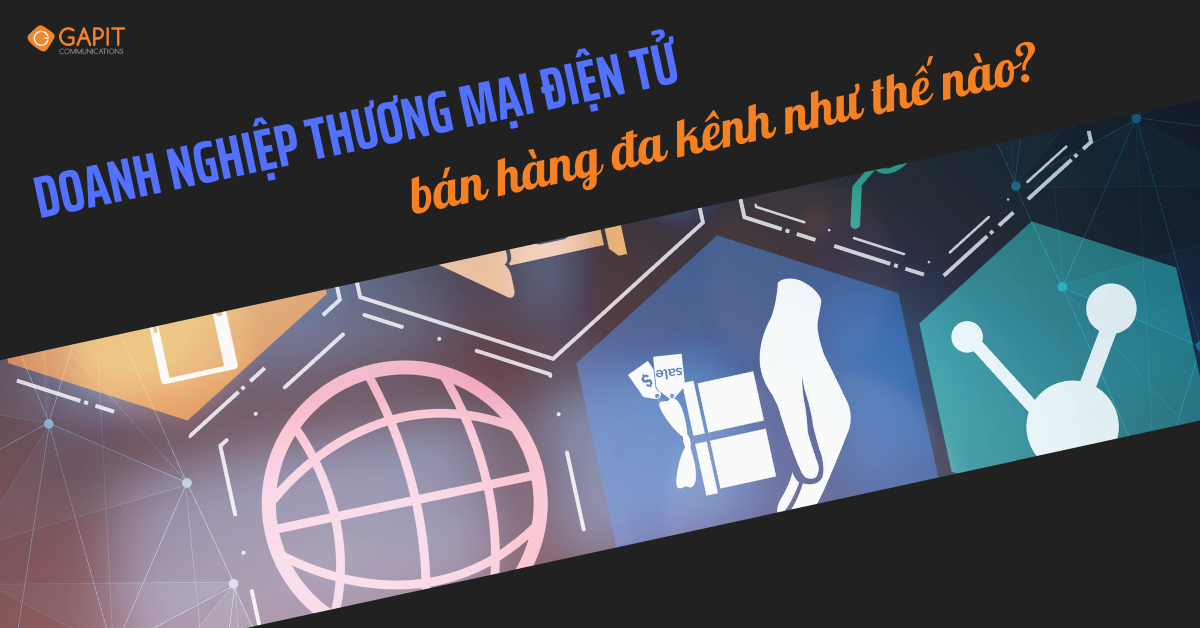In the current context of thriving e-commerce, multi-channel sales have become an effective retail trend as the media is expanding and changing consumer purchasing behavior. In the past, customers were required to visit retail locations for their purchases, however, with the rise of social media, customers now can buy through various channels such as websites, Facebook, Zalo, e-commerce sites,… Consequently, sellers must embrace a multi-channel sales model to easily reach customers.
There are two sale forms: Multi-Channel and Omni Channel and there is often confusion between the two. The following article will highlight the distinctions between these two forms.
1. Multi Channel
Multichannel is a sales model with numerous channels, whether online or offline. In which, Among these, the five most commonly utilized sales channels are:
– POS – Traditional retail points
– Social media – To promote businesses and engage in direct selling on Zalo, Facebook
– Website – Channel of Brand introduction and direct professional sales
– Mobile app – Sales through smartphone platform
– Affiliate – Sales via a collaborator network or other websites
In Multi Channel sales, each sales channel typically operates with its own independent business and management system and minimal integration among channels, resulting in a lack of connectivity between channels. For example, promotions and changes in product information may not be synchronized across all sales channels. Consequently, this model poses certain limitations for both sellers (businesses) and buyers (customers)
- Customers: may experience disruptions and inadequation throughout the purchasing process. For instance, Mr. A attempts to purchase a shirt from an online store X, but he cannot do so because the item is not marked as restocked on the sales website. (Insufficient and inconsistent information updates)
- Enterprise: may encounter conflicts of interest among sales channels
Therefore, to ensure the seamless and effective operation of sales channels, Multichannel demands businesses to have significant investments of time, resources, and costs, which may lead to challenges in management and hinder the optimization of sales efficiency.
2. Omni Channel
In contrast to Multichannel, not only placing products on multiple channels for sales, Omnichannel with a “customer -centric” slogan has optimized the customer reach through sales channels, identify detailed business materials (products, customers, inventories, promotions, orders, ..) from offline to online that are synchronized and managed within a unified system.
Businesses will update and manage their operations on a centralized platform instead of allocate manpower on each separate channel management. Sales channels are evaluated effectively including social media (Facebook, Instagram, Zalo, …), stores, websites, e -commerce sites such as Shopee, Lazada, Tiki, …
Compared to Multichannel, the unification in Omni Channel management offers numerous benefits:
For customers
- It provides a consistent experience for every customer at all times, facilitating easier business management and saving resources and time.
For Businesses:
- Provide businesses with a comprehensive overview of inventory, transportation, cash flow, … enabling more precise decision-making for future plans.
- Facilitate the evaluation of each store’s efficiency, comparisons among stores, and mutual support within the online distribution chain to enhance revenue for businesses
Due to these notable advantages, numerous businesses, especially big companies have implemented Omnichannel and achieved success like Unilever, P&G, Vinamilk, Aeon, …
Not only the mentioned big corporations can implement Omni Channel strategies, but any e-commerce businesses with multiple online channels including websites, Facebook, or sales on e-commerce sites, should consider adopting Omni Channel strategy to save time and effort in business control. Investing in technology is a prerequisite for achieving long-term success and making breakthroughs on the business path.
3. GapOne x HARAVAN: The optimal solution for businesses to compete in the e-commerce race
By seamlessly synchronizing and accurately identifying all information, including products, orders, customers, inventories,… across the entire network of stores and warehouses, the Omnichannel sales and centralized management system at Haravan doesn’t only facilitate retailers to save time, effort, and costs but also achieve significant efficiency in implementing multi-channel business.
GapOne is presently a partner of Haravan, providing Marketing Automation solution for hundreds of businesses on this platform. In the context of numerous challenges and issues in multi-channel sales that e-commerce businesses encounter, GapOne offers an effective omni-channel marketing solution to have the best connection with customers and optimize sales opportunities and revenue. The synergy between HARAVAN and GapOne forms an ideal duo, providing businesses with a competitive edge and positioning them at the leading of the fiercely competitive e-commerce industry.


